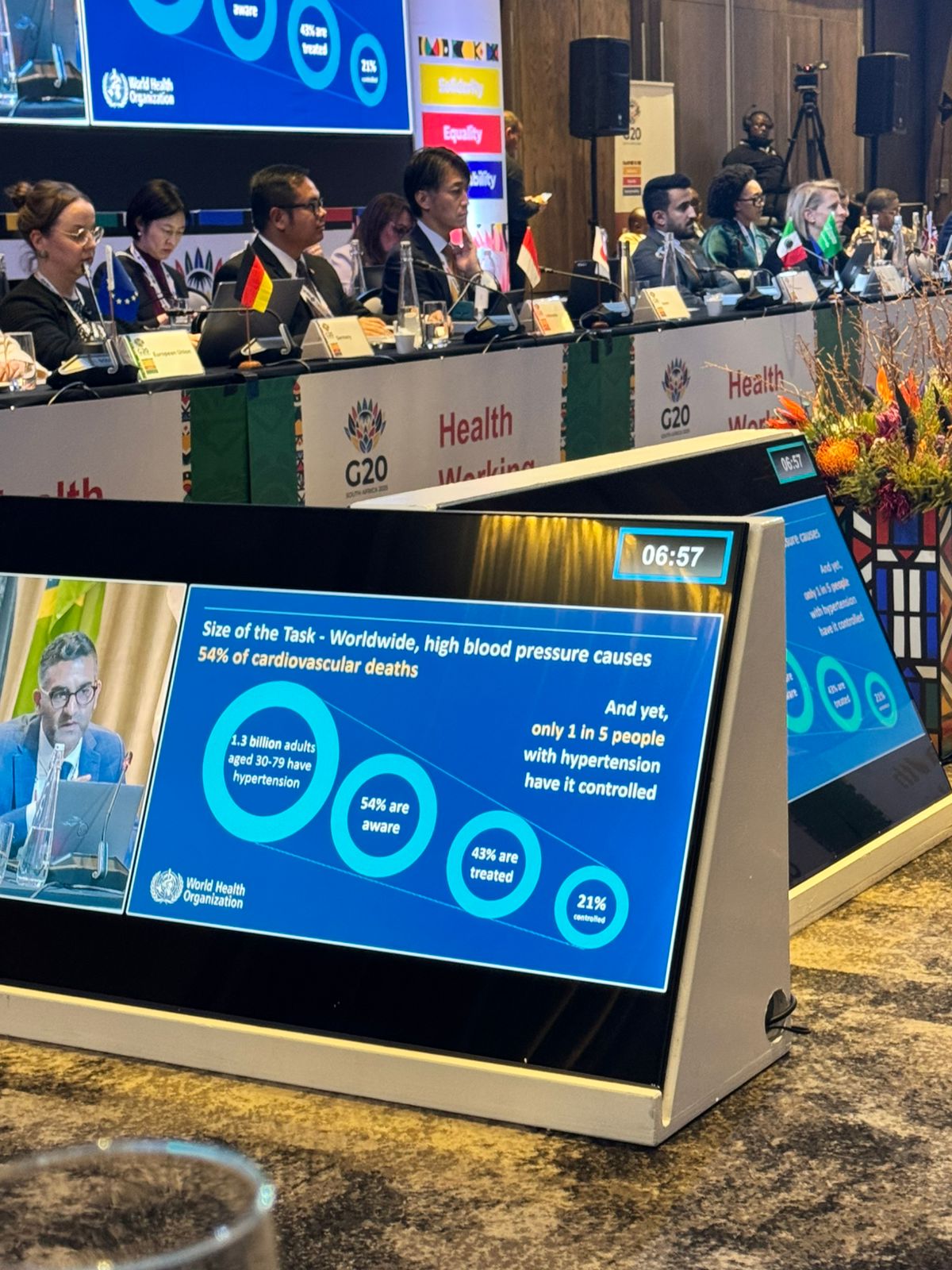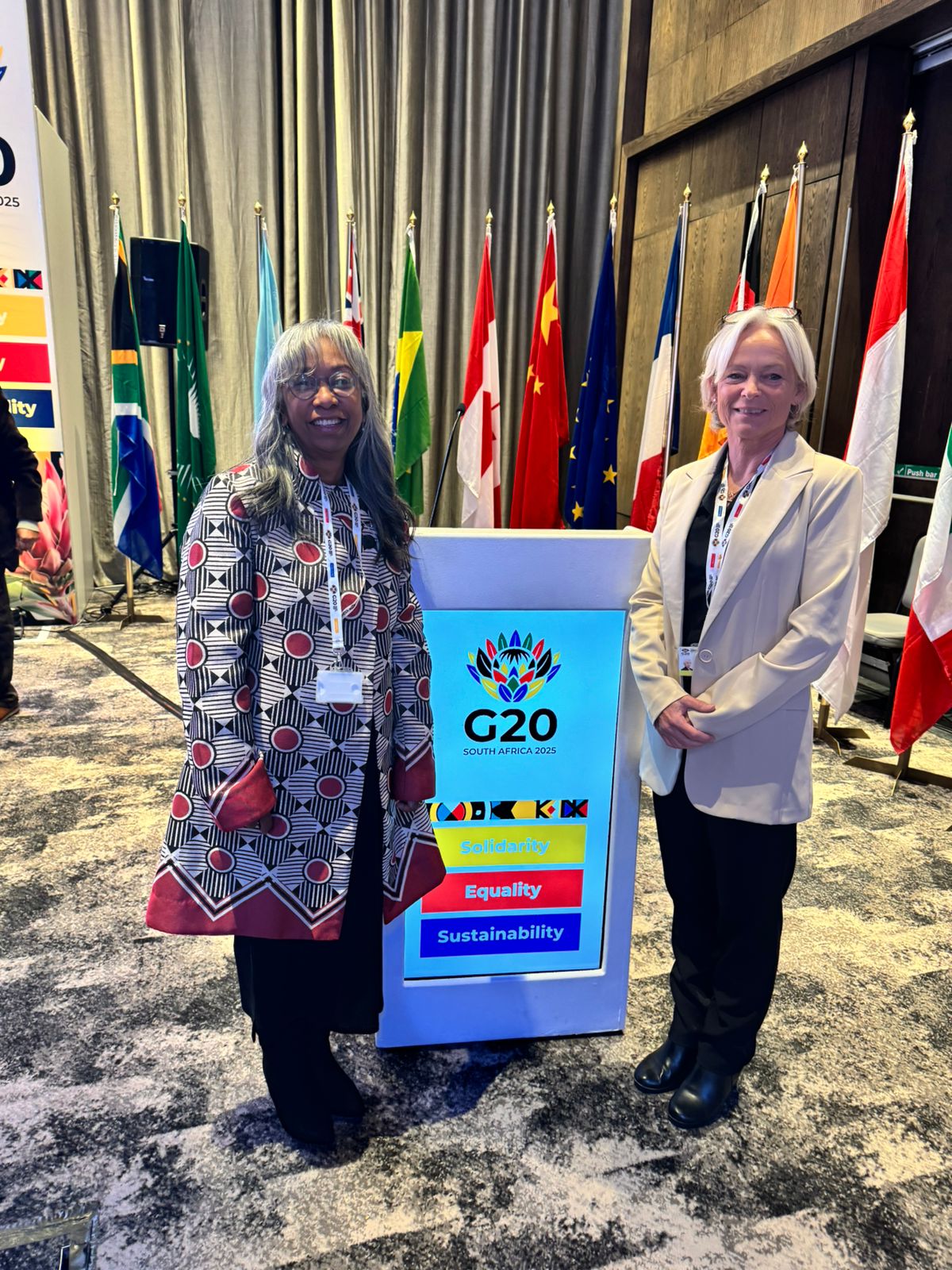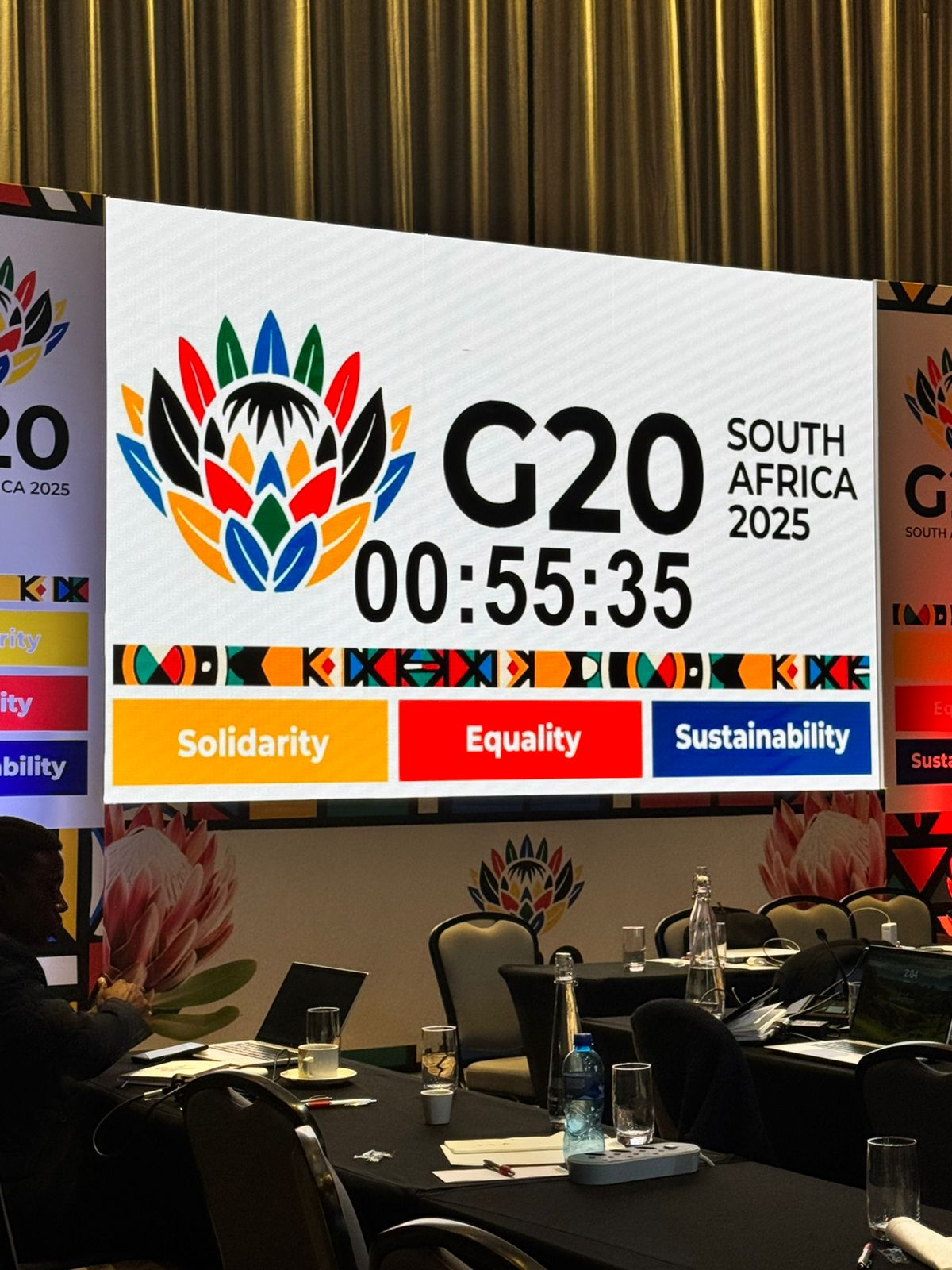The South African Medical Research Council (SAMRC) participated at the highly anticipated 4th G20 Health Working Group Meeting, taking place from 9 -13 June 2025 at the Melrose Arch, Gauteng, South Africa (SA). Dr Michelle Mulder, Executive Director: Grants, Innovation and Product Development (GIPD) and Director: Office of AIDS and TB (OATB) Prof Fareed Abdullah were distinguished invited speakers for several respective sessions. SAMRC Vice President Liesl Zühlke, a board member of the NCD Alliance spoke on behalf of the NCD Alliance. The gathering brought together health leaders, experts, and policymakers from the world’s largest economies, invited nations, and international organisations.
 The opening remarks were delivered by the G20 Presidency, Dr Sandile Buthelezi - Director General: Health, SA National Department of Health, and Hon Nomantu Nkomo-Ralehoko, MEC of Health, Gauteng, with an official welcome by Hon Panyaza Lesufi, Premier of Gauteng. This was followed by a keynote address by the SA Minister of Health, Hon Dr Pakishe Aaron Motsoaledi. The theme for this year’s meeting was, “Accelerate Health Equity, Solidarity, and Universal Coverage,” which underscored the need for our collective commitment to advancing global health equity and universal health coverage as a fundamental human right for all.
The opening remarks were delivered by the G20 Presidency, Dr Sandile Buthelezi - Director General: Health, SA National Department of Health, and Hon Nomantu Nkomo-Ralehoko, MEC of Health, Gauteng, with an official welcome by Hon Panyaza Lesufi, Premier of Gauteng. This was followed by a keynote address by the SA Minister of Health, Hon Dr Pakishe Aaron Motsoaledi. The theme for this year’s meeting was, “Accelerate Health Equity, Solidarity, and Universal Coverage,” which underscored the need for our collective commitment to advancing global health equity and universal health coverage as a fundamental human right for all.
Prof Zühlke contributed to the session focusing on the critical role of civil society and advocacy perspective towards “Advancing Equitable Access to NCD Medicines and Health Technologies: A Strategic Dialogue for G20 Countries toward the HLM4 on NCDs”. Non-communicable diseases (NCDs) account for the greatest burden on global health systems, resulting in 75% of non-pandemic related deaths worldwide. In SA, NCDs together with mental health disorders are the leading causes of mortality, morbidity and disability, having huge financial implications to patients, families, communities, the health system and the economy at large.
The session particularly focused on, on-the-ground barriers to NCD medicines and health products, how Non-governmental Organisation’s mobilise to advocate for policy changes, as well as community-driven solutions and patient advocacy strategies. Prof Zühlke shared real-world experiences and advocacy strategies that have successfully influenced policy changes for improved NCD access, saying “The NCD Alliance's global leadership in advocating for people living with NCDs is essential for ensuring our discussions remain grounded in-patient needs and community realities.”
Sadly, access to safe, effective and quality-assured NCD medicines and health technologies remain highly uneven. According to the 2021 WHO assessment of national capacity survey, which revealed that 1 in 5 countries experienced NCD medicine stockouts, with 41% of LMICs affected compared to 4% of high-income countries. This disparity requires an urgent need for coordinated efforts by G20 countries to address systemic barriers to equitable access.

Dr Mulder participated in the session “From Science to Sovereignty; R&D, Technology Transfer and Regional Production of Pandemic Preparedness”, which was hosted by SA, WHO, UNITAID, Afrigen, BIOVAC and the SAMRC.
Dr Mulder spoke on the theme ‘Science and Innovation for Pandemic Preparedness’, mentioning that investing in developing countries and particular Low- and Middle-income countries (LMICs) scientific ecosystems is essential for global health security. She highlighted how SAMRC builds research and development (R&D) capacity, citing the mRNA Technology Transfer Programme and how this creates end-to-end pandemic response capacity. A round table discussion followed, which aimed at aligning science, policy and investment for sustainable preparedness, where insights garnered were unpacked towards identifying concrete priorities that can sustain developing and LMIC-led innovation ecosystems beyond emergency cycles.
Prof Abdullah participated in the session on Science for Health and Economic Growth: Building Sustainable Domestics Science Ecosystems and spoke of the work the SAMRC and South African Universities are doing to grow the next generation of scientists through its research capacity building programme, building local capacity for mRNA vaccine development and production at scale and investing in the 110K whole human genome sequencing project, which will power precision medical and pharmacogenomics on the continent. The South African G20 Presidency and WHO have proposed a Science for Health and Economic Growth Commission which will strengthen G20 country contributions to science, help build local ecosystems for medical research and establish collaborations and partnerships between countries.
Prof Abdullah said, “There is an explosion in scientific and technological advancement in medical care globally with artificial intelligence and digitisation driving technological advancements, revolutions in diagnostics and modalities of therapy, genomics and individualised precision medicine, robotics and computer aided devices and interventional radiology and microinvasive and robotic surgery. In light of US funding cuts, the other G20 countries have become impelled to increase their contributions to medical research if rapid advancements are to be sustained and developed in ways which develop the global north and the global south so that all communities benefit from the incredible advances.”
“We are hopeful through this engagement that we can ensure that G20 commitments reflect the priorities of those most affected by access barriers, and that these will spark more important conversations that can culminate in actionable steps especially in the lead up to the Fourth High-level Meeting of the UN General Assembly on the prevention and control of NCDs and the promotion of mental health and wellbeing (HLM4) in New York, later this year”, concluded Prof Zühlke.

